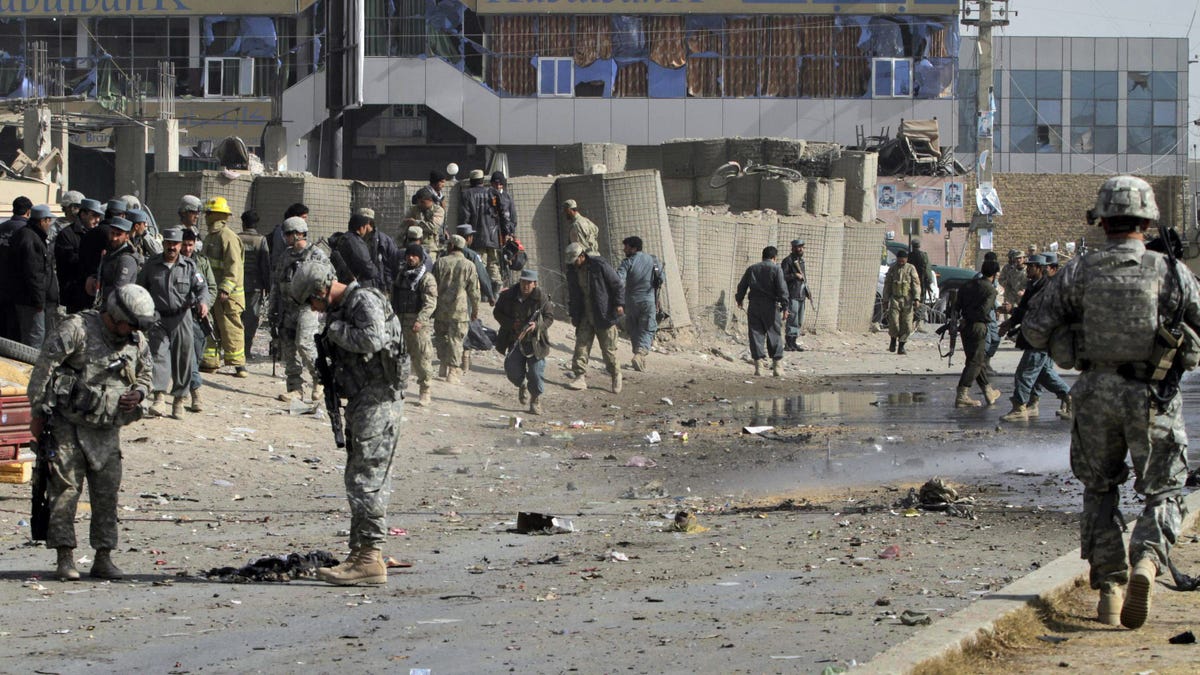
Dec. 27: U.S soldiers and Afghan policemen are seen at the scene of a suicide attack in Kandahar south of Kabul, Afghanistan. On Dec. 28 a U.S. military commander says it's 'naive' to think there's a practical way to seal Afghanistan's vast border with Pakistan and stop all Taliban fighters from slipping through. (AP2010)
WASHINGTON -- A U.S. military commander says it's "naive" to think there's a practical way to seal Afghanistan's vast border with Pakistan and stop all Taliban fighters from slipping through, but troops are having success defending vulnerable towns and fighting insurgents on Afghan soil.
Army Col. Viet Luong said that "to secure the border in the traditional sense" would "take an inordinate amount of resources."
"It's naive to say that we can stop, you know, forces coming through the border -- 261 kilometers is what I have," Luong said in a briefing with reporters.
"To secure the border in the traditional sense, if you're talking about, you know, like -- like what we would do along our own border with Mexico down in the southwestern United States, that -- that's not what we're doing," he said.
Senior U.S. military officials have said they hope the Pakistan military does more to shut down Taliban hideouts. But the U.S. denied reports that American forces are pushing to expand special operations raids inside Pakistan's tribal areas to target militants.
Luong, who oversees troops in a part of eastern Afghanistan, said actions on the border are having some effect on the particularly virulent group of fighters called the Haqqani Network.
"The Haqqani Network is, sort of, on its heels. We have captured and killed many, many of their fighters and mid-level leaders. The senior leadership routinely hides in -- in the tribal areas in Pakistan now for the fear of being captured or killed," he said.
He also noted that the Pakistanis do have hundreds of border checkpoints on their side backed up by dozens of checkpoints on the Afghanistan side which are manned by Afghan border police.
But the commander said any effort to stop Taliban fighters from crossing the border would require far more cooperation from tribes inside Pakistan who provide safe passage.
"I've been focusing my operations on these safe areas and fight them closer to the interior, where they have to train, they have to bed down, they have to stow their caches," he said.
Luong added that as U.S. and NATO forces expand their footprint along the security line, "it's harder and harder for these guys to come and bed down in these villages. I can tell you a couple specific instances where the tribes have told these guys, 'You got to take a move out, and you guys are not welcome here.'"
The Associated Press contributed to this report.




